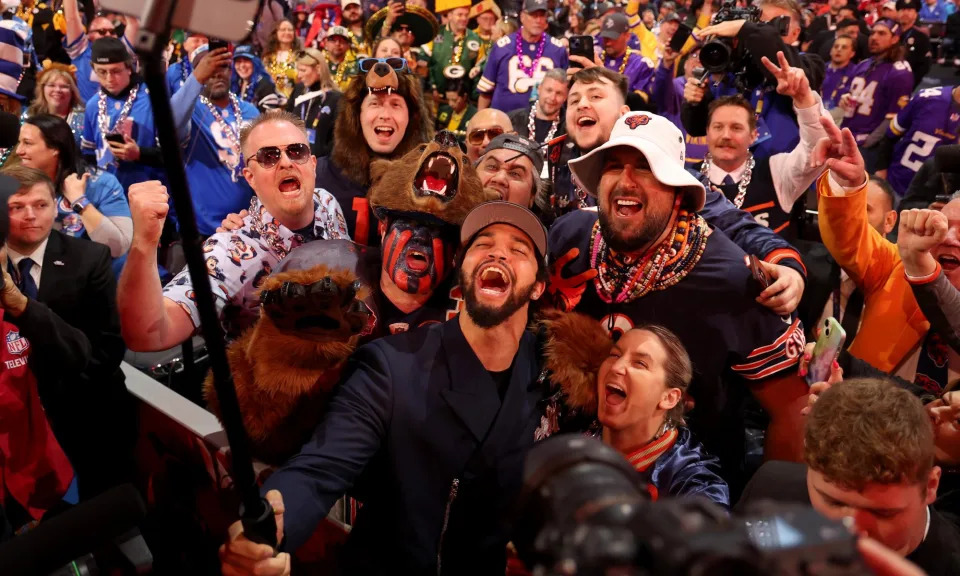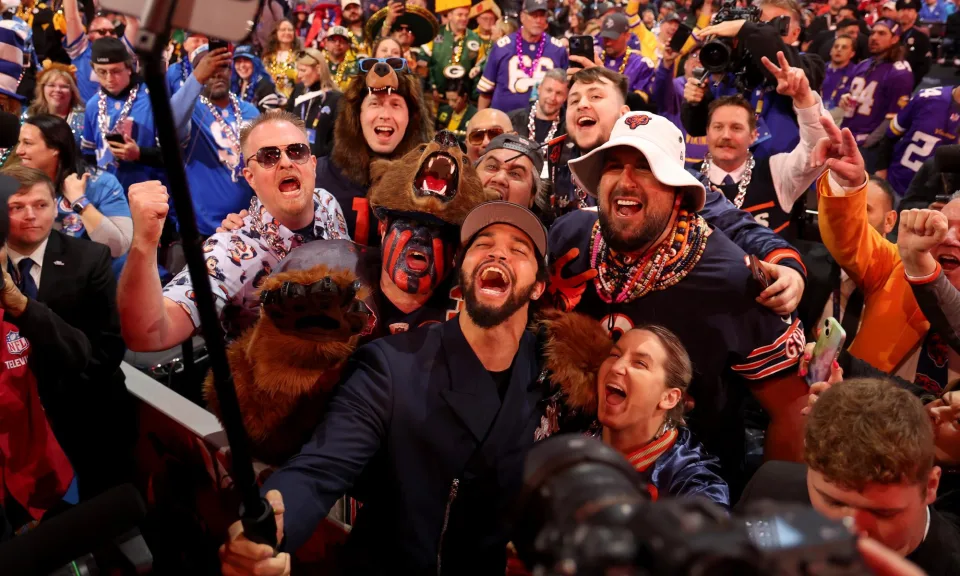
Winners
Chicago Bears.Anyone with an internet connection could have chosen Southern California quarterback Caleb Williams as the first pick. However, Williams’ arrival is a significant victory for the Bears, who have been searching for a quarterback for decades. Chicago fans will expect Williams to be the team’s best quarterback ever, which isn’t unreasonable given his exceptional talent and the team’s lack of success at the position. Ryan Poles, the general manager, has also done an excellent job surrounding Williams with one of the best receiver groups in football. Poles traded for Keenan Allen of the Los Angeles Chargers earlier this year and used the ninth pick to add Rome Odunze of Washington to an already talented and productive team that included DJ Moore. The Bears may not win big in 2024, but they should be more entertaining than they have been in the past. And for the first time in years, the club has a solid foundation upon which to build a Super Bowl team.
Minnesota Vikings.Kirk Cousins, the Vikings’ quarterback, left in free agency to join the Atlanta Falcons. The team was expected to struggle in 2024, with Sam Darnold serving as a last resort. Now, if Vikings fans must watch Darnold, it should only be for a few games. The Vikings selected JJ McCarthy, the 10th pick from Michigan, as their future signal-caller by trading up. McCarthy is a hotly debated prospect. He won the national championship at Michigan, but the Wolverines wanted him to throw the ball sparingly in an offence that relied heavily on running. When he did throw, he was more capable than great. But he’s only 21 and has a lot of athletic potential, and Vikings coach Kevin O’Connell has a good track record with quarterbacks; McCarthy is his latest pupil. After trading for another first-round pick, Minnesota selected Alabama’s Dallas Turner at No. 17. McCarthy may be the future, but Turner should be an effective NFL player right away.
Pittsburgh Steelers.The Steelers were fortunate to select Troy Fautanu, an offensive tackle from Washington, with the 20th pick in the draft. Pittsburgh’s offensive line has two gaping holes, one at centre (where they have almost no one) and another at left tackle (where they start one of the league’s worst players). Fautanu is a talented and critically versatile big man who can inject some grit into an underachieving line. To give new quarterback Russell Wilson a chance, the Steelers needed to add someone like Fautanu. Pittsburgh was able to address this issue due to other teams’ decisions. The Steelers continued their successful draft with the selection of West Virginia centre Zach Frazier in the second round. Meanwhile, Michigan receiver Roman Wilson, a third-round pick, could play a significant role as a rookie in the Steelers’ position group, which lacks depth.
Losers
Atlanta Falcons.Spending the eighth overall pick on a quarterback who is expected to be taken later in the first or even second round? We all make bold decisions from time to time. But doing it right after guaranteeing $100 million to an established veteran who plays the same position? And without first consulting the quarterback? The Falcons’ decision to draft Washington’s Michael Penix Jr, a 24-year-old with a strong left arm and a history of injuries, appears unusual in this context. Cousins will play this season at the age of 36, so planning for three years in advance is reasonable. However, in order for Penix’s decision to be successful, the Falcons must have been the most astute team members. That has not always been the case with the men in charge of this particular franchise, which could explain why long-suffering Atlanta fans appeared perturbed by the Cousins-Penix two-step.
Denver Broncos.Choosing Oregon quarterback Bo Nix at No. 12 was a little less unusual than what the Falcons did with Penix, but only slightly. Nix is another old prospect, at 24 years old. He developed into an excellent college quarterback by the end of his five-year career, but that is only half the story. It took Nix a long time (and a significant age advantage over his competition) to become useful at Oregon, where the coaching staff assisted him with a barrage of quick, short throws that allowed his teammates to make plays with the ball. How much development he has ahead of him in the NFL is a reasonable question, which is why most expected him, like Penix, to go undrafted until later in the first round or even the second. It’s difficult to imagine Nix becoming an above-average starter, but the Broncos desperately need him to. Meanwhile, Wilson will receive nearly $40 million while playing elsewhere this season. It smells like poor asset management from a team that has missed the playoffs eight times in a row.
Defensive players.The first 14 names called in Thursday’s first round were all offensive prospects. The drought ended when UCLA edge defender Laiatu Latu was selected by the Indianapolis Colts at No. 15. That was by far the worst stretch of draft futility for defenders in the post-1970 merger NFL, with 2021 (when the first defender selected was the eighth overall pick) being the previous low point. Why was 2024 so exceptional? Six quarterbacks were passed over in the first 12 picks, indicating a league-wide desire for average quarterback play. An unusually strong class of wide receivers (led by Marvin Harrison Jr., now with the Cardinals) and the presence of an elite tight end, Brock Bowers (who went to the Las Vegas Raiders), also contributed. The majority of the offensive players were targeted, specifically throwers and catchers. However, this will not alleviate the financial losses suffered by defenders who fell down draft boards.
